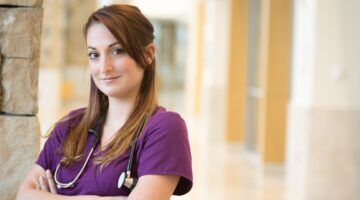
One of several companies partnered with the federal government to develop treatments for Covid-19 has launched its first clinical trials of an antiviral antibody cocktail.
Tarrytown, New York-based Regeneron Pharmaceuticals said Thursday that it had started the first Phase I/II studies combining the monoclonal antibodies REGN10933 and REGN10987 – collectively known as REGN-COV2 – in ambulatory and hospitalized adults with Covid-19. The studies will respectively compare the two-drug combination against placebo in 1,054 and 1,860 patients. As of Friday, both studies were listed as not yet recruiting patients, and no sites were listed. The company said the program will include four populations: the aforementioned two, plus uninfected people at high risk of exposure and uninfected people with close exposure to a Covid-19 patient.

Tackling Rising Drug Costs and Growing Popularity of GLP-1’s
See how Quantum Health is providing the steps to help their members tackle the cost of specialty medications and other drugs.
“Over the last long months, we have learned that repurposing existing medicines unfortunately does not offer a broadly effective solution for Covid-19,” said trial investigator Dr. Suraj Saggar, chief of infectious disease at Holy Name Medical Center in Teaneck, New Jersey, in a statement. “For this reason, we need to investigate custom-designed approaches like REGN-COV2.”
Indeed, most of the drugs under development for Covid-19 – whether direct-acting antivirals against the SARS-CoV-2 virus itself or anti-inflammatory drugs for treating the disease’s symptoms – are drugs that are already approved for other conditions or have been pulled out of the archives. For example, Gilead Sciences’ antiviral remdesivir, which now has an emergency use authorization from the Food and Drug Administration, was originally developed for Ebola virus and then repurposed for SARS-CoV-2 based on preclinical data showing activity against other coronaviruses. However, data for the drug have shown it to be only moderately effective at treating the disease, and its current intravenous formulation is limited to patients who have already been hospitalized. Regeneron has also sought to develop another approved drug, the IL-6 inhibitor Kevzara (sarilumab), for Covid-19, but with mixed results.
Regeneron said it developed REGN-COV2 using the “rapid response” capabilities and drug cocktail approach that it had previously used to develop a triple antibody treatment for Ebola, REGN-EB3, which the FDA is currently reviewing. The company screened the two antibodies from among thousands tested on mice with genetically humanized immune systems.
In a note to investors Thursday, RBC Capital Markets analyst Kennen MacKay wrote that while Regeneron is the leader in the antibody field, it has competition, particularly from Eli Lilly, whose partner, Junshi Biosciences, dosed the first participant in a Phase I study of the antibody JS016 among healthy volunteers in China earlier this week. Lilly plans to dose the first participant in its own Phase I study in the U.S. in the coming days. Last week, Lilly and another partner, AbCellera, launched the first ever study of an antibody against the SARS-CoV-2 virus, when they dosed the first hospitalized patients in their Phase I trial.

Changes in Nurse Staffing Answer Clinician Demands
The ongoing nursing shortage facilitates high turnover rates since nurses know they won’t have difficulties finding new jobs. In order to retain and attract staff, it’s in a facility’s best interest to understand what nurses want.
Another company developing monoclonal antibodies against Covid-19 in-house is San Francisco-based Vir Biotechnology, which has formed partnerships with several large drug companies, along with a deal with Alnylam Pharmaceuticals to develop an siRNA-based drug for the virus, though the three product candidates listed in its pipeline are still preclinical.
Photo: Kaikoro, Getty Images






